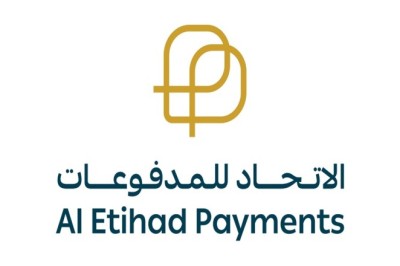
GENEVA--(BUSINESS WIRE/AETOSWire)-- International organizations released Ten Digital Economy Guidelines in alignment with the G20 Leaders’ policy directives that aim at securing sustainable economic growth. The Guidelines were adopted by the Union of Arab Banks (UAB), Union of Arab Chambers (UAC), International Network for SMEs (INSME), and the Global Coalition for Efficient Logistics (GCEL) to set the foundation for successfully implementing the Digital Economy.
The Digital Economy has been a key G20 policy directive since 2015. However, until today, no one has defined the Digital Economy, nor how it can be deployed to re balance and grow the high, mid and low-income economies.
Following 15 years of R&D on digitizing the global economy, an international Coalition is leading a global economic development program that digitally “Jump Starts”national economies and their trade partners through a Digital Economy Platform(DEP). This Coalition involves the public sector representing 75% of the world's citizens. The Coalition will also involve the private sector comprised of the world's leading technology, e-commerce, finance, and insurance firms with USD 1.5 trillion revenues and a 4.7 million workforce.
These organizations will be united to deliver the DEP that maximizes the power of what technology makes possible today to reduce excess trade costs by USD 4.8 trillion, increase goods trade by USD 6.3 trillion, and create more than 400 million jobs by 2030.
Mr. Wissam Fattouh, UAB Secretary-General,commented on the benefits for the financial industry, “The DEP tools will better integrate banks to the B2B marketplace through the use of dynamic, high quality, and validated data. Our members will have greater transparency to reduce risks, ease regulatory compliance burdens and realize a new USD 7.5trillion financial services market opportunity by 2030.”
This global program transforms the manufacturing, agriculture and services sectors by digitizing the value chains in 6 steps: 1) Create an online digital catalog of goods and services globally, 2) Optimize matching of buyers with sellers, 3) Increase the conversion ratio from seeing a product or service to acquisition, 4) Provide digital financing, 5) Secure digital Insurance, and6) Deliver digital logistics and operations tools for business transactions.
Dr. Sergio Arzeni, INSME President and former OECD Director of the Centre for Entrepreneurship, exclaimed: “Tonsure global adoption, the DE must be free of cost to end users, especially benefiting SMEs, yet sustained by a unique business model.”
The program offsets monopolistic and geopolitical concerns by empowering national e-commerce, finance and insurance firms to expand service sand realize a new USD 20.5 trillion digital services market opportunity by 2030.
Dr. Khaled Hanafy, UAC Secretary-General,remarked, “The Digital Economy must encompass a global scoring mechanism that enables all users to perform an objective evaluation of performance risk when making business decisions.”
Captain Samuel Salloum, GCEL Chairman,commented that the Digital Economy must be based on a comprehensive solution,“The real Digital Economy provides seamlessly integrated commerce, finance,insurance, and logistics/operations verticals, which represent the main pillars of the B2B market place, the mother of all industries.”
The Ten Digital Economy Guidelines were developed to serve as the foundation for any future initiative related to the implementation of theDigital Economy. The Guidelines followed completion of the G20 Nations Case Study with90 ministries, IGOs/NGOs, academia, and private sector experts representing 80%of the global GDP. Nearly 95% of the G20 B2B participants defined the digital tools they need to be more competitive.



















Facebook Conversations
Disqus Conversations